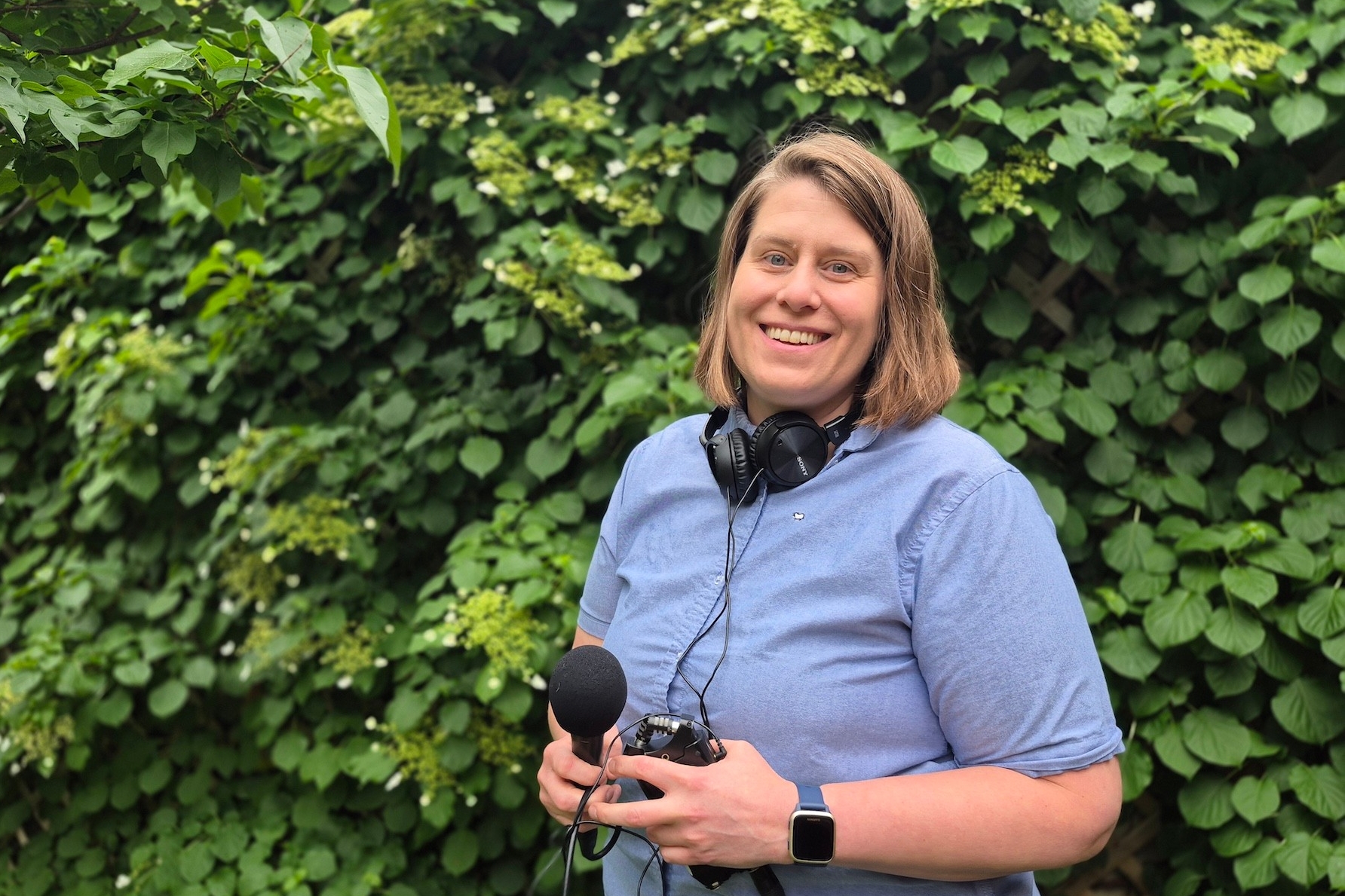‘Podcasting requires the ears of a storyteller,’ says This is Montreal host

As the host of CBC’s This is Montreal podcast, Ainslie MacLellan knows what makes a great audio story.
That’s exactly what she aimed to teach students last semester in JOUR 498 Podcasting, a course she taught in Concordia’s Department of Journalism.
“I think I was lucky in that a lot of the students came to class excited about the possibilities of audio storytelling and many of them were prolific podcast listeners already,” MacLellan says.
“The assignments we did in class were really about getting them to listen to podcasts with the ears of a storyteller, to break down what makes a story shine.”
Throughout the course, MacLellan encouraged students to listen with “the ears of a storyteller.”
The course focused on different styles of narrative podcasts, encouraging students to reflect on different elements like sound, music, narration, interviewing techniques and story structure to bring an audio story to life.
Assignments ranged from setting a scene using only sound, interviewing a subject on location to draw out action, colour, anecdotes, and emotion, and using scripted narration to build anticipation, intrigue, and surprise in their storytelling.
For their final projects, students worked in teams to create podcast episodes that explored various aspects of student life on campus.
“Though a lot of podcasts are recorded in studio, for several of the student assignments I asked them to gather in the field, to try to emphasize the role that sound and scene-setting plays in narrative storytelling,” MacLellan says.
“My hope is that these assignments helped students realize what makes audio storytelling special: How they can transport a listener with sound, how they can use their scripting to build a sense of suspense, curiosity and surprise, and how they can help listeners connect with a character, and ultimately, with the story they're trying to tell.”
Lifelong love for audio stories
MacLellan was 15 years old the first time she pushed a studio mic button and went live on air.
MacLellan was volunteering at CKDU-FM (88.1 MHz), a non-profit radio station broadcasting from the campus of Dalhousie University in her hometown of Halifax, Nova Scotia.
She got involved from her love for indie music but eventually shifted from music journalism to storytelling.
“It can be such an intimate medium,” MacLellan says. “I feel like you can create such a warm and inviting space for a listener with sound.”
“As a storyteller, you can really imagine the connection you are building between the person you are interviewing and the person who is listening to their story at home, or while walking the dog, or while sitting on the metro.”
MacLellan has now been with CBC for nearly two decades.
After earning a B.A. from the University of King’s College, MacLellan began her career with an internship at CBC in Quebec City, she eventually moved on to CBC Montreal.
She held various roles in the newsroom—including current affairs reporter, radio host, and TV/video journalist—before becoming the host of CBC’s This is Montreal, a narrative-style podcast that explores the quirks, curiosities, and frustrations that define the city.
Although she has taken on various roles in the newsroom, MacLellan says audio reporting has always been her greatest passion and sharing that love of audio storytelling with students has been especially gratifying.
“I have been blown away by some of the thoughtful reflections and creative work these students have produced. I can't wait to see where they go in the future,” MacLellan says.
“Capturing people's attention even for a moment, especially in this day and age, feels like a powerful privilege. To use that attention to tell people something that is interesting, engaging or important is our responsibility.”
Find out more about Concordia’s Department of Journalism.

